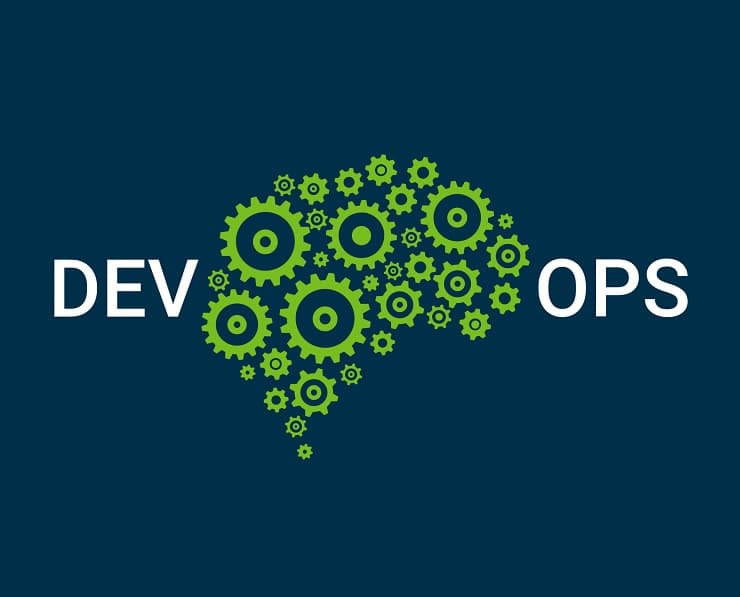Student Feedback
AWS Certified Machine Learning - Specialty: AWS Certified Machine Learning - Specialty (MLS-C01) Certification Video Training Course Outline
Introduction
Data Engineering
Exploratory Data Analysis
Modeling
ML Implementation and Operations
Wrapping Up
Introduction
AWS Certified Machine Learning - Specialty: AWS Certified Machine Learning - Specialty (MLS-C01) Certification Video Training Course Info
AWS Certified Machine Learning - Specialty: AWS Certified Machine Learning - Specialty (MLS-C01) Certification Video Training Course Info
Machine learning represents transformative technology enabling systems to learn from data and improve performance without explicit programming. The AWS Certified Machine Learning Specialty certification validates comprehensive expertise in designing, implementing, and maintaining machine learning solutions on Amazon Web Services platform. This credential demonstrates proficiency across the complete machine learning lifecycle including data engineering, exploratory data analysis, modeling, and machine learning implementation and operations. Candidates must understand AWS services supporting machine learning including SageMaker, S3, EC2, Lambda, and specialized AI services. The certification requires both theoretical knowledge of machine learning concepts and practical skills implementing solutions using AWS tools.
Machine learning practitioners pursuing this certification develop expertise spanning multiple disciplines including statistics, programming, data engineering, and cloud architecture. Understanding supervised learning, unsupervised learning, and reinforcement learning paradigms proves essential. Statistical foundations including probability distributions, hypothesis testing, and regression analysis support algorithm selection and model evaluation. Programming proficiency in Python enables data manipulation, feature engineering, and model development. Cloud architecture knowledge ensures efficient, scalable machine learning implementations. Just as network professionals master troubleshooting Cisco systems through systematic approaches, machine learning specialists develop methodical problem-solving skills applicable to algorithm selection, hyperparameter tuning, and model optimization. Video training courses provide structured learning through visual demonstrations of machine learning concepts, AWS service configurations, and implementation best practices ensuring comprehensive preparation.
Navigating AWS Machine Learning Service Ecosystem
AWS offers extensive machine learning services addressing diverse use cases from simple predictions to complex deep learning applications. Amazon SageMaker represents the comprehensive platform for building, training, and deploying machine learning models at scale. Understanding SageMaker capabilities including built-in algorithms, notebook instances, training jobs, and model hosting proves critical for certification success. AWS provides pre-trained AI services including Rekognition for image analysis, Comprehend for natural language processing, Translate for language translation, and Transcribe for speech-to-text conversion. These services enable rapid implementation without requiring deep machine learning expertise.
AWS machine learning infrastructure includes foundational services supporting data storage, compute, and workflow orchestration. S3 provides scalable object storage for training datasets and model artifacts. EC2 instances offer flexible compute resources for custom machine learning workloads. Lambda enables serverless execution of prediction code and data processing functions. Understanding how these services integrate creates comprehensive machine learning solutions. Much like professionals tracking data center certification evolution adapt to changing technical landscapes, machine learning practitioners must stay current with AWS service updates and new capabilities. AWS Glue supports data preparation and ETL workflows. Step Functions orchestrate complex machine learning pipelines. CloudWatch provides monitoring and logging for machine learning operations. Candidates should develop comprehensive understanding of AWS services applicable to machine learning workflows.
Implementing Data Engineering Pipelines for Machine Learning
Data engineering establishes foundations for successful machine learning by collecting, transforming, and preparing data for model training. The certification extensively covers data engineering concepts including data ingestion, storage, processing, and feature engineering. Understanding data sources including databases, streaming data, and file systems enables comprehensive data collection strategies. Data quality directly impacts model performance requiring validation, cleaning, and transformation processes. Feature engineering transforms raw data into informative features improving model accuracy and training efficiency.
AWS provides robust tools supporting machine learning data engineering workflows. S3 serves as central data lake storing raw and processed datasets at scale. AWS Glue automates ETL processes transforming data into analytics-ready formats. Athena enables SQL queries against S3 data supporting exploratory analysis. Kinesis processes streaming data in real-time enabling online learning scenarios. Understanding data engineering parallels how professionals approach entry-level certification pathways as foundations for advanced expertise. Data versioning tracks dataset changes ensuring reproducibility. Data partitioning optimizes storage costs and query performance. Schema validation ensures data quality before model training. Candidates should master data engineering concepts and AWS implementation approaches establishing solid foundations for machine learning success.
Mastering Exploratory Data Analysis Techniques
Exploratory data analysis reveals insights about datasets informing algorithm selection and feature engineering decisions. Understanding statistical distributions, correlations, and patterns in data guides effective machine learning implementations. Visualization techniques including histograms, scatter plots, and box plots communicate data characteristics to stakeholders. Statistical measures including mean, median, standard deviation, and percentiles quantify data properties. Identifying outliers, missing values, and data imbalances enables appropriate preprocessing strategies.
AWS SageMaker notebooks provide interactive environments for exploratory data analysis using Python libraries including pandas, numpy, and matplotlib. Understanding data profiling identifies quality issues requiring remediation. Correlation analysis reveals feature relationships informing feature selection. Distribution analysis determines whether data transformations improve model training. how professionals navigate CCNA exam changes staying current with requirements, machine learning practitioners must adapt analysis approaches to diverse datasets. Class balance analysis in classification problems determines whether resampling techniques are necessary. Dimensionality reduction techniques including PCA visualize high-dimensional data. Time series analysis identifies trends and seasonality affecting temporal predictions. Candidates should develop strong exploratory analysis skills supporting informed machine learning decisions.
Selecting Appropriate Machine Learning Algorithms
Algorithm selection represents critical decision affecting model performance, training time, and interpretability. Understanding algorithm characteristics including linear models, tree-based methods, neural networks, and ensemble approaches enables informed selections. Linear regression suits continuous predictions with linear relationships. Logistic regression handles binary classification problems. Decision trees provide interpretable models for classification and regression. Random forests improve accuracy through ensemble learning. Gradient boosting machines achieve state-of-art performance on structured data.
Deep learning algorithms including convolutional neural networks excel at image processing tasks. Recurrent neural networks handle sequential data including time series and natural language. Transformers represent current state-of-art for many NLP tasks. Understanding algorithm complexity, training requirements, and deployment constraints guides practical selections. Just as network professionals understand modern data center foundations supporting infrastructure, machine learning specialists must grasp algorithmic foundations supporting predictions. Clustering algorithms including k-means and DBSCAN discover patterns in unlabeled data. Dimensionality reduction techniques including PCA and t-SNE reduce feature spaces. SageMaker provides built-in algorithms optimized for AWS infrastructure. Candidates should master algorithm selection criteria matching problems to appropriate machine learning approaches.
Optimizing Model Training and Hyperparameter Tuning
Model training transforms algorithms and data into predictive models through iterative optimization processes. Understanding training concepts including loss functions, optimization algorithms, and convergence criteria proves essential. Loss functions quantify prediction errors guiding training improvements. Gradient descent and variants optimize model parameters minimizing loss. Learning rates control optimization step sizes balancing convergence speed and stability. Batch size affects training efficiency and generalization.
Hyperparameter tuning identifies optimal algorithm configurations maximizing model performance. Grid search exhaustively evaluates parameter combinations. Random search samples parameter spaces more efficiently. Bayesian optimization intelligently explores hyperparameter spaces. SageMaker automatic model tuning automates hyperparameter optimization at scale. Understanding training strategies parallels how professionals approach penetration testing success through systematic methodologies. Early stopping prevents overfitting by monitoring validation performance. Regularization techniques including L1 and L2 penalties reduce model complexity. Cross-validation provides robust performance estimates. Transfer learning leverages pre-trained models accelerating training. Candidates should master training optimization techniques ensuring efficient, effective model development.
Evaluating Model Performance and Validation
Model evaluation quantifies prediction accuracy and generalization capability using appropriate metrics and validation strategies. Understanding evaluation metrics for different problem types enables meaningful performance assessment. Classification metrics include accuracy, precision, recall, F1-score, and AUC-ROC. Regression metrics include MSE, RMSE, MAE, and R-squared. Ranking metrics evaluate information retrieval and recommendation systems. Understanding metric selection based on business objectives and data characteristics proves critical.
Validation strategies estimate how models perform on unseen data preventing overfitting. Train-test splits separate data for model development and evaluation. Cross-validation provides robust performance estimates using multiple data partitions. Stratified sampling maintains class distributions in splits. Time series validation respects temporal ordering preventing data leakage. Much like professionals navigating CompTIA certification updates adapt to evolving requirements, machine learning practitioners adjust validation approaches for different domains. Confusion matrices visualize classification performance across classes. ROC curves illustrate tradeoffs between true positive and false positive rates. Learning curves diagnose underfitting and overfitting. Candidates should master evaluation techniques ensuring accurate model performance assessment.
Deploying Machine Learning Models to Production
Model deployment makes predictions available to applications and users transforming machine learning research into business value. Understanding deployment options including real-time inference, batch predictions, and edge deployment enables appropriate architecture selections. Real-time endpoints serve predictions with low latency for interactive applications. Batch transform processes large datasets efficiently. Edge deployment brings predictions to IoT devices and mobile applications.
SageMaker hosting services simplify model deployment through managed infrastructure. Endpoint configurations specify instance types and scaling policies. Auto-scaling adjusts capacity based on traffic patterns. Multi-model endpoints reduce hosting costs by sharing infrastructure. Understanding deployment best practices ensures reliable, efficient production systems. how professionals master IT fundamentals certification establishing career foundations, machine learning practitioners must grasp deployment essentials. Model monitoring tracks prediction accuracy and data drift. A/B testing compares model versions. Canary deployments gradually rollout changes reducing risk. Model versioning enables rollback if issues arise. Candidates should understand deployment strategies and AWS implementation approaches.
Implementing Machine Learning Operations Practices
MLOps applies DevOps principles to machine learning workflows enabling reliable, scalable model lifecycle management. Understanding CI/CD pipelines for machine learning automates testing, training, and deployment. Version control tracks code, data, and model changes ensuring reproducibility. Automated testing validates model performance before production deployment. Infrastructure as code provisions consistent environments. Monitoring detects model degradation and operational issues.
SageMaker Pipelines orchestrates end-to-end machine learning workflows from data preparation through deployment. Model registry tracks model versions, metadata, and approval status. Feature store manages feature engineering ensuring consistency between training and inference. Understanding MLOps practices improves collaboration, reliability, and efficiency. Just as cybersecurity professionals master analyst certification requirements for systematic security, machine learning teams implement systematic operational practices. Experiment tracking documents training runs enabling result comparison. Model explainability techniques including SHAP values provide prediction insights. Governance frameworks ensure responsible AI development. Candidates should understand MLOps principles and AWS tooling supporting operational excellence.
Understanding Deep Learning Frameworks and Implementation
Deep learning powers state-of-art results across computer vision, natural language processing, and many other domains. Understanding neural network architectures including feedforward networks, convolutional networks, and recurrent networks enables effective deep learning implementations. Activation functions introduce non-linearity enabling complex pattern learning. Layer types including dense, convolutional, pooling, and dropout serve different purposes. Network depth and width affect model capacity and training requirements.
AWS supports popular deep learning frameworks including TensorFlow, PyTorch, and MXNet. SageMaker provides framework containers simplifying distributed training. Understanding GPU acceleration improves training efficiency for large models. Transfer learning leverages pre-trained models reducing data and compute requirements. Much like network professionals track certification evolution adapting to changes, deep learning practitioners follow framework developments. Pre-trained models from model zoos accelerate implementation. Fine-tuning adapts pre-trained models to specific tasks. Model compression techniques including quantization and pruning reduce deployment costs. Candidates should understand deep learning concepts and AWS implementation approaches.
Leveraging AWS AI Services for Rapid Implementation
AWS AI services provide pre-trained models accessible through APIs enabling rapid implementation without machine learning expertise. Amazon Rekognition analyzes images and videos detecting objects, faces, text, and scenes. Amazon Comprehend extracts insights from text including entities, sentiment, and topics. Amazon Translate provides neural machine translation across multiple languages. Amazon Transcribe converts speech to text with speaker identification and custom vocabularies.
Understanding when to use AI services versus custom models enables appropriate solution architectures. AI services excel for common use cases with available training data. Custom models address specialized domains requiring specific training data. Combining AI services and custom models creates comprehensive solutions. how professionals implement cloud resource automation for operational efficiency, AI services accelerate development. Amazon Forecast generates time series predictions. Amazon Personalize creates recommendation systems. Amazon Textract extracts text and data from documents. Amazon Polly synthesizes natural-sounding speech. Candidates should understand AI service capabilities and integration approaches.
Orchestrating Complex Machine Learning Workflows
Complex machine learning implementations require orchestrating multiple steps including data processing, training, evaluation, and deployment. Understanding workflow orchestration enables reliable, repeatable pipelines. AWS Step Functions coordinates distributed applications and microservices. SageMaker Pipelines specifically addresses machine learning workflow orchestration. Directed acyclic graphs define workflow steps and dependencies.
Workflow automation reduces manual effort and improves consistency. Parameterized pipelines enable experimentation and retraining. Conditional logic handles different execution paths based on intermediate results. Error handling and retries improve reliability. Just as professionals master workflow orchestration fundamentals for data processing, machine learning practitioners implement automated pipelines. Pipeline versioning tracks workflow changes. Approval steps enable human oversight of critical decisions. Integration with CI/CD systems automates pipeline updates. Monitoring and logging provide visibility into pipeline execution. Candidates should understand workflow orchestration concepts and AWS implementation tools.
Preparing Systematically for Certification Success
Certification success requires systematic preparation combining study materials, hands-on practice, and strategic planning. Understanding exam domains including data engineering, exploratory data analysis, modeling, and machine learning implementation guides study priorities. Official AWS training materials provide authoritative content aligned with exam objectives. Third-party courses offer alternative explanations and additional practice. Hands-on experience with AWS services proves essential for practical questions.
Effective preparation strategies balance breadth and depth across exam topics. Practice exams identify knowledge gaps requiring additional study. Time management during examination ensures all questions receive attention. Understanding question formats including multiple choice and multiple response prepares candidates appropriately. how professionals approach solutions architect preparation through structured study, machine learning candidates benefit from systematic approaches. Study groups provide peer support and alternative perspectives. Documentation review reinforces service understanding. Whitepapers provide deep dives into AWS architectures. Hands-on labs build practical skills. Candidates should develop comprehensive study plans addressing all exam objectives.
Building Static Web Interfaces for Model Demonstrations
Web interfaces enable users to interact with machine learning models through browsers. Understanding basic web development supports creating demonstrations and prototypes. HTML structures content while CSS provides styling. JavaScript adds interactivity enabling dynamic user experiences. Static websites hosted on S3 provide cost-effective demonstration platforms. CloudFront accelerates content delivery globally.
Web interfaces for machine learning typically include input forms for feature values and display areas for predictions. JavaScript calls API Gateway endpoints invoking Lambda functions that call SageMaker endpoints. Understanding web fundamentals enables effective model demonstrations. Just as professionals learn static website hosting for content delivery, machine learning practitioners create interfaces showcasing models. Form validation ensures input quality. Result visualization communicates predictions effectively. Responsive design supports various devices. Authentication protects production endpoints. Candidates interested in end-to-end solutions should understand web interface basics.
Optimizing Storage Performance for Machine Learning Workloads
Storage performance significantly impacts machine learning training times and costs. Understanding storage options including EBS, EFS, and FSx enables optimal selections. EBS provides block storage for EC2 instances with various performance tiers. EFS offers shared file storage supporting concurrent access. FSx for Lustre delivers high-performance file systems optimized for training workloads.
Storage optimization considers throughput, latency, and cost tradeoffs. SSD-backed storage provides low latency for random access. Throughput-optimized storage suits sequential access patterns. Data placement affects training performance with local storage offering lowest latency. Much like professionals leverage shared storage capabilities for infrastructure efficiency, machine learning implementations optimize data access. S3 integration with SageMaker enables scalable dataset storage. Data caching reduces repeated data transfers. Compression reduces storage costs and transfer times. Candidates should understand storage optimization for machine learning workloads.
Tracking Microsoft Certification Evolution for Cross-Platform Skills
While focusing on AWS machine learning certification, understanding broader certification landscapes provides career context. Technology certifications evolve reflecting platform changes and market demands. Microsoft certifications complement AWS credentials for professionals working in multi-cloud environments. Understanding certification trends informs strategic professional development planning.
Cross-platform knowledge enhances career flexibility and solution design capabilities. Azure offers competing machine learning services requiring similar concepts with different implementations. Understanding multiple platforms enables informed architecture decisions. tracking Microsoft certification changes for informed planning, professionals should monitor AWS certification updates. Vendor-neutral machine learning knowledge transfers across platforms. Cloud platforms increasingly interoperate requiring multi-cloud understanding. Candidates should view certifications within broader career development contexts.
Understanding Legacy Microsoft Certifications for Context
Historical certification programs provide context for current credential landscapes. MCSA certifications represented established career paths before retirement. Understanding certification evolution helps professionals navigate changing credential markets. While MCSA no longer exists, concepts covered remain relevant.
Legacy certifications addressed technologies still deployed in many organizations. Knowledge from older programs transfers to current platforms. Professionals sometimes maintain multiple certification generations supporting diverse environments. Just as understanding MCSA certification details provides historical context, examining past credentials informs current decisions. Certification retirement reflects vendor strategy shifts toward role-based credentials. Modern certifications emphasize practical skills over product version knowledge. Candidates should understand certification evolution while focusing on current, relevant credentials.
Recognizing Technology Lifecycle and Support Implications
Technology platforms have finite support lifecycles affecting implementation decisions. Understanding end-of-support dates informs migration planning and risk management. Organizations running unsupported software face security and compliance risks. Planning migrations before support ends enables orderly transitions.
End-of-life announcements provide advance notice for planning purposes. Extended support options may be available at premium costs. Understanding product lifecycles affects architecture decisions favoring supported platforms. recognizing Exchange Server support dates for planning, machine learning practitioners should track AWS service evolution. Cloud services typically maintain backward compatibility longer than on-premises software. Deprecation notices provide migration timelines. Service updates introduce new capabilities and improvements. Candidates should understand technology lifecycle concepts.
Exploring Emerging Data Engineering Certifications
Data engineering credentials address growing demand for professionals managing data pipelines and infrastructure. Understanding emerging certifications helps professionals plan skill development. Data engineering certifications validate pipeline development, ETL processing, and data platform management capabilities. These credentials complement machine learning certifications.
Data engineering provides essential foundations for machine learning success. Strong data engineering ensures quality training datasets and efficient data access. Understanding both data engineering and machine learning creates comprehensive capabilities. Just as professionals data engineering certifications for specialized expertise, machine learning practitioners should consider complementary credentials. Modern data platforms integrate streaming and batch processing. DataOps practices improve data pipeline reliability. Candidates should understand data engineering's relationship to machine learning.
Navigating Cloud Certification Pathways Strategically
Cloud certifications offer structured learning paths from foundational through specialty credentials. Understanding certification hierarchies guides professional development planning. Entry-level certifications establish cloud fundamentals. Associate-level credentials demonstrate platform proficiency. Specialty certifications validate expertise in specific domains including machine learning.
Strategic certification planning aligns credentials with career objectives and market demands. Multiple certifications demonstrate breadth while specialties show depth. Recertification requirements maintain knowledge currency. Understanding certification ecosystems enables informed decisions. exploring Azure certification paths for career planning, AWS professionals should strategically sequence credentials. Foundational certifications provide prerequisites for advanced credentials. Hands-on experience complements certifications. Candidates should develop long-term certification roadmaps supporting career goals.
Implementing Automated Machine Learning Solutions
Automated machine learning simplifies model development by automating algorithm selection, hyperparameter tuning, and feature engineering. SageMaker Autopilot automatically builds, trains, and tunes models requiring minimal machine learning expertise. Understanding AutoML capabilities enables rapid prototyping and baseline model establishment. Autopilot supports regression and classification tasks on tabular data. The service explores multiple algorithms and hyperparameter combinations identifying optimal configurations.
AutoML implementations balance automation with control allowing customization when needed. Autopilot generates notebooks showing data exploration and model development steps enabling learning and customization. Understanding when AutoML suffices versus requiring manual intervention proves important for practical implementations. AutoML excels for standard problems with clean data while custom approaches suit specialized domains. Professionals pursuing wireless networking expertise appreciate automation reducing manual configuration, paralleling AutoML simplifying model development. Autopilot provides model explainability reports describing feature importance. Multiple model candidates enable selection based on accuracy, latency, or interpretability tradeoffs. Integration with SageMaker Model Monitor enables production deployment. Candidates should understand AutoML capabilities and appropriate use cases.
Developing Computer Vision Applications with AWS
Computer vision enables machines to interpret visual information from images and videos. AWS provides services and frameworks supporting computer vision implementations. Amazon Rekognition offers pre-trained models for object detection, facial analysis, and content moderation. SageMaker supports custom model development using frameworks including TensorFlow and PyTorch. Understanding computer vision pipelines from data collection through deployment enables end-to-end implementations.
Computer vision applications require substantial training data and computational resources. Data augmentation techniques including rotation, scaling, and color adjustment increase effective dataset sizes. Transfer learning from pre-trained models like ResNet and VGG accelerates development. GPU instances provide necessary compute for training deep neural networks. Understanding computer vision parallels how professionals approach specialized technical certifications mastering domain-specific skills. Convolutional neural networks form the backbone of most computer vision models. Object detection frameworks including YOLO and SSD identify and locate objects in images. Semantic segmentation assigns labels to individual pixels. Instance segmentation distinguishes individual objects. Candidates should understand computer vision concepts and AWS implementation approaches.
Implementing Natural Language Processing Solutions
Natural language processing enables machines to understand and generate human language. AWS offers NLP services including Amazon Comprehend for text analysis and Amazon Translate for language translation. SageMaker supports custom NLP model development using frameworks like Hugging Face Transformers. Understanding NLP pipelines including tokenization, embedding, and model application enables effective implementations.
NLP tasks include sentiment analysis, named entity recognition, topic modeling, and machine translation. Pre-processing steps including lowercasing, punctuation removal, and stopword filtering prepare text for analysis. Word embeddings like Word2Vec and GloVe represent words as dense vectors capturing semantic relationships. Transformer architectures including BERT and GPT achieve state-of-art results across NLP tasks. professionals developing enterprise software skills through specialized study, NLP practitioners master language processing techniques. Transfer learning from pre-trained language models reduces data requirements. Fine-tuning adapts models to specific domains and tasks. Attention mechanisms help models focus on relevant input portions. Candidates should understand NLP fundamentals and AWS implementation tools.
Optimizing Model Performance Through Feature Engineering
Feature engineering transforms raw data into informative representations improving model accuracy and training efficiency. Understanding feature engineering techniques proves critical for machine learning success. Numerical transformations including scaling, normalization, and logarithmic transformations improve algorithm performance. Categorical encoding techniques including one-hot encoding and target encoding convert categories to numerical representations. Feature interactions capture relationships between variables.
Advanced feature engineering leverages domain knowledge creating meaningful representations. Polynomial features capture non-linear relationships. Binning converts continuous variables to categorical reducing noise. Date features extract temporal components including day of week and month. Text features include word counts, TF-IDF scores, and embeddings. Just as professionals master technical implementation standards for quality solutions, feature engineering follows established patterns. SageMaker Processing jobs enable distributed feature engineering at scale. Feature Store manages feature definitions ensuring consistency between training and inference. Automated feature engineering tools explore transformation combinations. Candidates should master feature engineering techniques improving model performance.
Implementing Time Series Forecasting Solutions
Time series forecasting predicts future values based on historical temporal patterns. AWS provides specialized services including Amazon Forecast automating time series predictions. Understanding time series concepts including trends, seasonality, and autocorrelation enables effective forecasting. DeepAR algorithm handles multiple related time series learning cross-series patterns. Prophet handles time series with strong seasonal patterns and missing data.
Time series forecasting requires appropriate data preparation and validation strategies. Time-based train-test splits respect temporal ordering preventing data leakage. Rolling window validation simulates production forecasting scenarios. Stationarity transformations including differencing and detrending improve many algorithms. Understanding forecasting applications parallels professionals implementing collaboration solutions requiring domain-specific expertise. ARIMA models suit short-term forecasting with clear patterns. LSTM networks handle complex temporal dependencies. Forecast evaluation uses metrics including MAPE, RMSE, and WAPE. Multiple aggregation levels from daily to monthly address different business needs. Candidates should understand time series concepts and AWS forecasting services.
Building Recommendation Systems with AWS
Recommendation systems suggest relevant items to users based on preferences and behavior. Amazon Personalize provides managed recommendation service requiring minimal machine learning expertise. Understanding recommendation approaches including collaborative filtering, content-based filtering, and hybrid methods enables appropriate selections. Collaborative filtering leverages user-item interactions. Content-based filtering uses item attributes. Hybrid approaches combine multiple techniques.
Personalize supports various use cases including product recommendations, personalized rankings, and similar items. Real-time personalization adapts to user behavior during sessions. Batch recommendations generate suggestions offline for efficiency. Cold start strategies handle new users and items lacking interaction history. professionals implementing portal solutions requiring user experience expertise, recommendation systems enhance engagement. User segmentation enables targeted recommendations. A/B testing evaluates recommendation quality. Diversity metrics ensure recommendations avoid filter bubbles. Candidates should understand recommendation concepts and Personalize implementation.
Implementing Anomaly Detection Solutions
Anomaly detection identifies unusual patterns deviating from normal behavior. Applications include fraud detection, equipment monitoring, and quality control. Understanding anomaly detection approaches including statistical methods, machine learning algorithms, and deep learning techniques enables appropriate selections. Statistical approaches identify outliers based on distributions. Isolation forests detect anomalies efficiently. Autoencoders learn normal patterns flagging deviations.
AWS supports anomaly detection through various services and algorithms. SageMaker Random Cut Forest algorithm detects anomalies in streaming data. DeepAR identifies anomalous time series values. Lookout for Metrics automatically detects anomalies in business metrics. Understanding anomaly detection parallels how professionals approach web content management requiring pattern recognition. Threshold tuning balances false positives and false negatives. Ensemble methods combine multiple detectors improving robustness. Real-time detection enables immediate response to anomalies. Candidates should master anomaly detection techniques and AWS implementations.
Developing Reinforcement Learning Applications
Reinforcement learning trains agents to make sequential decisions maximizing cumulative rewards. Understanding RL concepts including states, actions, rewards, and policies enables implementation. Markov decision processes formalize sequential decision problems. Q-learning learns action values. Policy gradient methods directly optimize policies. Deep reinforcement learning combines neural networks with RL.
AWS SageMaker RL supports reinforcement learning development providing managed environments. Integration with RoboMaker enables robotics simulations. Environments including OpenAI Gym provide standardized interfaces. Ray RLlib offers scalable RL algorithms. Understanding RL applications in web experience platforms where adaptive systems improve user interactions shows versatility. Multi-agent RL handles multiple interacting agents. Transfer learning accelerates training by leveraging previous learning. Simulation enables safe exploration before real-world deployment. Candidates should understand RL fundamentals and AWS implementation tools.
Implementing Model Explainability and Interpretability
Model explainability helps stakeholders understand prediction rationale supporting trust and regulatory compliance. Understanding explainability techniques including feature importance, SHAP values, and partial dependence plots enables transparent models. Feature importance ranks input relevance. SHAP values provide local explanations for individual predictions. Partial dependence plots show feature effects on predictions.
SageMaker Clarify provides explainability for models detecting bias and explaining predictions. Model-agnostic explanations work across algorithm types. Understanding when explainability proves critical guides implementation priorities. Regulated industries require explainable decisions. how professionals implement case management solutions requiring audit trails, explainable ML provides transparency. LIME generates local explanations through perturbation. Attention mechanisms in deep learning show input focus. Simpler models like decision trees offer inherent interpretability. Candidates should master explainability techniques and AWS tools.
Ensuring Fairness and Detecting Bias in Models
Bias in machine learning models can perpetuate or amplify unfair outcomes affecting protected groups. Understanding bias sources including training data, algorithm selection, and feature engineering enables mitigation. Pre-processing techniques modify training data reducing bias. In-processing approaches constrain training to improve fairness. Post-processing adjusts predictions to achieve fairness metrics.
SageMaker Clarify detects bias in data and models using various fairness metrics. Class imbalance can create biased predictions. Proxy variables indirectly encode protected attributes. Understanding fairness metrics including demographic parity and equalized odds enables appropriate bias detection. Just as professionals implement forms management systems ensuring equal access, fair ML ensures equitable outcomes. Fairness constraints may reduce overall accuracy requiring tradeoff management. Regular bias auditing detects emerging issues. Diverse training data improves model fairness. Candidates should understand bias detection and mitigation techniques.
Implementing Fraud Detection Machine Learning Systems
Fraud detection identifies illegitimate transactions and activities protecting organizations and customers. Machine learning excels at detecting complex fraud patterns. Understanding fraud detection challenges including class imbalance, adversarial behavior, and real-time requirements guides implementations. Fraudulent transactions represent tiny fractions of total volumes creating extreme class imbalance. Fraudsters adapt to detection systems requiring continuous model updates.
Fraud detection implementations combine multiple techniques. Anomaly detection flags unusual transactions. Supervised learning leverages labeled fraud examples. Graph analysis identifies suspicious networks. Real-time scoring enables transaction blocking. how professionals implement email security solutions protecting communications, fraud detection safeguards transactions. Feature engineering captures behavioral patterns and deviations. Ensemble methods combine multiple models improving detection. Alert prioritization focuses investigation resources. Candidates should understand fraud detection techniques and AWS implementations.
Developing Predictive Maintenance Solutions
Predictive maintenance uses machine learning to anticipate equipment failures enabling proactive maintenance. Understanding predictive maintenance concepts including failure prediction, remaining useful life estimation, and anomaly detection supports implementation. Sensor data provides equipment condition information. Time series analysis identifies degradation patterns. Survival analysis estimates failure probabilities.
Predictive maintenance implementations integrate multiple data sources and analytics. IoT sensors stream equipment telemetry. Historical maintenance records provide failure labels. Environmental data provides context. Feature engineering extracts meaningful equipment health indicators. implementing talent management analytics predicting workforce needs, predictive maintenance anticipates equipment requirements. Classification models predict failure likelihood. Regression models estimate remaining useful life. Real-time monitoring enables immediate alerts. Cost-benefit analysis quantifies maintenance optimization value. Candidates should understand predictive maintenance machine learning applications.
Implementing Demand Forecasting Solutions
Demand forecasting predicts future product demand enabling inventory optimization and resource planning. Machine learning handles complex demand patterns including seasonality, trends, and external factors. Understanding forecasting challenges including data sparsity, promotional impacts, and new product introduction guides implementations. Historical sales provide primary training data. External factors including weather, holidays, and economic indicators improve accuracy.
Demand forecasting implementations combine statistical and machine learning approaches. Time series algorithms capture temporal patterns. Hierarchical forecasting maintains consistency across product hierarchies. Probabilistic forecasts quantify uncertainty. professionals implementing social collaboration platforms predicting engagement, demand forecasting anticipates customer behavior. Transfer learning leverages similar product patterns. Ensemble methods combine multiple forecasts. Forecast accuracy metrics guide model selection. Inventory optimization translates forecasts into stocking decisions. Candidates should understand demand forecasting machine learning techniques.
Developing Customer Churn Prediction Models
Churn prediction identifies customers likely to discontinue service enabling retention interventions. Machine learning analyzes customer behavior patterns predicting churn risk. Understanding churn prediction challenges including time horizons, intervention strategies, and class imbalance affects implementation. Defining churn operationally determines prediction targets. Feature engineering captures behavioral changes indicating churn risk.
Churn prediction implementations leverage diverse data sources. Transaction history shows engagement patterns. Customer service interactions indicate satisfaction. Demographic data provides context. Usage patterns reveal value perception. implementing assessment platforms evaluating performance, churn models assess customer health. Logistic regression provides interpretable churn probabilities. Gradient boosting machines achieve high accuracy. Survival analysis models time-to-churn. Intervention optimization determines cost-effective retention strategies. Candidates should understand churn prediction techniques and business value.
Implementing Price Optimization Machine Learning
Price optimization uses machine learning to determine optimal pricing maximizing revenue or profit. Understanding price elasticity, competitive dynamics, and customer segmentation enables effective pricing. Demand models predict volume at different price points. Revenue management balances occupancy and price in constrained capacity scenarios. Dynamic pricing adjusts prices based on demand and inventory.
Price optimization implementations combine economic theory and machine learning. Historical pricing and sales data train demand models. Competitive intelligence provides market context. Customer segmentation enables targeted pricing. Constraint optimization identifies optimal prices given business rules. developing planning analytics solutions for decision support, price optimization informs strategy. Reinforcement learning adapts pricing strategies based on outcomes. A/B testing validates pricing changes. Price fairness considerations prevent customer backlash. Candidates should understand price optimization machine learning applications.
Implementing Distributed Training for Large Models
Large machine learning models require distributed training across multiple compute instances to achieve reasonable training times. Understanding distributed training strategies including data parallelism and model parallelism enables efficient large-scale training. Data parallelism replicates models across instances processing different data batches. Model parallelism partitions models across instances when models exceed single instance memory. Understanding communication patterns and synchronization strategies affects training efficiency.
SageMaker distributed training libraries simplify implementation of data and model parallelism. Horovod provides efficient distributed training for TensorFlow and PyTorch. Parameter servers coordinate gradient updates across workers. All-reduce algorithms efficiently aggregate gradients. professionals implementing TM1 analytics solutions managing distributed data, distributed training manages computation across resources. Gradient compression reduces communication overhead. Mixed precision training accelerates computation using lower precision where appropriate. Pipeline parallelism overlaps computation and communication. Candidates should understand distributed training concepts and SageMaker implementation approaches.
Optimizing Inference Performance and Latency
Production inference performance directly affects user experience and infrastructure costs. Understanding inference optimization techniques including model compilation, hardware acceleration, and batching enables efficient deployments. SageMaker Neo compiles models for specific hardware targets improving performance. Elastic Inference adds GPU acceleration to CPU instances cost-effectively. Inference recommender identifies optimal instance types and configurations.
Multi-model endpoints reduce hosting costs by serving multiple models from shared infrastructure. Model quantization reduces model size and improves latency by using lower precision. Pruning removes unnecessary model parameters. Knowledge distillation creates smaller models mimicking larger model performance. Just as professionals optimize Cognos analytics implementations for performance, inference optimization improves ML system responsiveness. Batching combines multiple requests improving throughput. Caching frequently requested predictions reduces redundant computation. Asynchronous inference handles long-running predictions. Candidates should master inference optimization techniques.
Implementing Automated Model Retraining Pipelines
Models degrade over time as data distributions shift requiring periodic retraining. Understanding automated retraining approaches maintains model accuracy without manual intervention. Scheduled retraining updates models at regular intervals. Trigger-based retraining initiates when performance drops below thresholds. Continuous training incrementally updates models with new data.
SageMaker Pipelines orchestrates automated retraining workflows. Model monitoring detects performance degradation triggering retraining. Data quality checks prevent training on corrupted data. Model validation compares new models to production baselines. implementing integration solutions maintaining system health, automated retraining sustains model performance. Champion-challenger testing evaluates new models against current production versions. Gradual rollout reduces risk from model updates. Rollback capabilities restore previous versions if issues arise. Candidates should understand automated retraining implementation.
Ensuring Security and Compliance in Machine Learning
Machine learning systems handle sensitive data requiring robust security and compliance controls. Understanding data encryption, access controls, and audit logging protects machine learning assets. Encryption at rest protects stored data including training datasets and models. Encryption in transit secures data transfers. IAM policies control access to resources. VPC isolation provides network-level security.
Compliance requirements vary by industry and jurisdiction affecting machine learning implementations. HIPAA compliance for healthcare requires specific safeguards. GDPR compliance for EU data mandates individual rights. PCI DSS compliance for payment data requires stringent security. implementing content management security protecting digital assets, ML security safeguards models and data. Data anonymization reduces privacy risks. Model governance tracks model lineage and approvals. Security monitoring detects unauthorized access. Candidates should understand security and compliance requirements.
Implementing Edge Machine Learning Deployments
Edge deployments bring machine learning inference to devices reducing latency and enabling offline operation. Understanding edge constraints including limited compute, memory, and power guides model optimization. Model compression techniques reduce model size enabling edge deployment. SageMaker Neo compiles models for edge devices. AWS IoT Greengrass manages edge deployments.
Edge machine learning applications include mobile devices, IoT sensors, and autonomous systems. On-device inference eliminates cloud latency and connectivity dependencies. Federated learning trains models across distributed devices without centralizing data. Model updates push improved models to edge devices. professionals implementing information management platforms across distributed environments, edge ML distributes intelligence. Quantization and pruning optimize models for resource-constrained devices. Hardware acceleration using specialized chips improves edge inference. Hybrid architectures combine edge and cloud processing. Candidates should understand edge deployment considerations.
Exploring Security Information and Event Management Integration
Machine learning enhances security operations through automated threat detection and response. Integrating ML with SIEM platforms improves security monitoring effectiveness. Anomaly detection identifies unusual access patterns and behaviors. Classification models categorize security events. Understanding security use cases guides ML integration.
ML-powered security applications include intrusion detection, malware classification, and user behavior analytics. Streaming data processing enables real-time threat detection. Historical data analysis establishes normal baselines. Professionals pursuing security certifications complement ML skills with domain expertise. Graph analysis identifies attack patterns across systems. Natural language processing analyzes security logs and reports. Automated response actions contain threats rapidly. Candidates interested in security applications should understand ML integration approaches.
Understanding Version Control Integration for Machine Learning
Version control systems track code changes enabling collaboration and reproducibility in machine learning projects. Understanding Git integration with machine learning workflows proves essential. Code repositories store training scripts, preprocessing code, and deployment configurations. Model versioning tracks model iterations and performance. Data versioning captures dataset changes.
GitHub and similar platforms provide collaborative development environments. Pull requests enable code review before integration. CI/CD pipelines automate testing and deployment. how GitHub expertise supports software development, ML practitioners leverage version control. MLflow tracks experiments including parameters, metrics, and artifacts. DVC provides data version control for large datasets. Notebooks version control requires special handling. Candidates should understand version control integration with machine learning workflows.
Preparing for Graduate Management Admission Testing
While focused on machine learning certification, understanding standardized testing provides broader educational context. GMAT assesses analytical, quantitative, and verbal skills for graduate business programs. Strong analytical skills prove valuable across technical and business domains. Understanding standardized assessments informs test preparation strategies.
Graduate education complements professional certifications providing theoretical foundations and research exposure. MBA programs develop business acumen valuable for ML leadership roles. Professionals exploring business school preparation combine technical and business expertise. Quantitative skills from ML transfer to standardized testing. Analytical reasoning supports both ML problem-solving and test performance. Candidates considering advanced degrees should understand admission requirements.
Exploring Google Cloud Machine Learning Alternatives
Understanding competitive machine learning platforms provides market context and broadens technical knowledge. Google Cloud Platform offers comparable ML services including Vertex AI. Multi-cloud strategies leverage strengths across providers. Understanding multiple platforms enhances architecture decisions and career flexibility.
GCP provides pre-trained APIs AWS AI services. AutoML automates model development comparable to SageMaker Autopilot. TensorFlow integration reflects Google's ML heritage. professionals exploring Google certifications for platform expertise, understanding competitive offerings provides perspective. Comparing service capabilities informs vendor selection. Multi-cloud ML deployments improve resilience. Cross-platform knowledge enhances employability. Candidates should maintain awareness of alternative platforms.
Understanding Digital Forensics and Machine Learning
Digital forensics investigates security incidents and cybercrimes through evidence analysis. Machine learning enhances forensics through automated evidence processing and pattern recognition. Understanding forensics applications demonstrates ML versatility beyond commercial use cases. Malware classification identifies threats based on behavior patterns. Image forensics detects manipulated media.
ML-powered forensics tools process large evidence volumes efficiently. Text analysis extracts relevant information from documents and communications. Timeline reconstruction identifies event sequences. Professionals pursuing forensics expertise may leverage ML capabilities. Anomaly detection identifies suspicious activities in logs. Network traffic analysis reveals attack patterns. Legal considerations affect evidence handling and model deployment. Candidates interested in security and forensics should understand ML applications.
Exploring Academic Achievement Testing Contexts
Standardized academic testing demonstrates educational foundations valuable for technical careers. Strong academic backgrounds in mathematics and science support machine learning learning. Understanding educational assessment contexts provides perspective on skill development and credentialing.
Academic achievement correlates with ability to master technical concepts. Mathematics proficiency particularly benefits ML practitioners. Analytical skills transfer across domains. Professionals considering academic assessment preparation develop foundational capabilities. Statistical understanding supports ML algorithm comprehension. Logical reasoning aids debugging and optimization. Continuous learning mindsets established through education benefit career-long development. Candidates should value academic foundations supporting technical expertise.
Understanding Emergency Medical Certification Standards
While distinct from machine learning, emergency medical certifications demonstrate how standardized credentials validate practical competencies across professions. Understanding diverse credentialing approaches provides career development perspective. Certifications combine knowledge assessment with practical skill demonstration.
Professional certification principles transfer across domains. Maintaining current knowledge through recertification applies broadly. Practical application complements theoretical understanding. emergency medical credentials validating clinical competencies, technical certifications demonstrate implementation capabilities. Hands-on practice proves essential for skill development. Assessment rigor ensures credential value. Candidates should appreciate certification as professional development tool.
Exploring K-12 Educational Assessment Frameworks
Educational assessment frameworks measure student learning guiding instructional improvements. Understanding assessment design principles informs professional certification development and evaluation. Valid assessments accurately measure intended constructs. Reliable assessments produce consistent results.
Assessment best practices apply to professional credentialing. Clear learning objectives guide assessment development. Multiple question formats assess different cognitive levels. academic assessment programs measuring student achievement, professional certifications validate competency. Performance-based assessments complement multiple-choice questions. Statistical analysis ensures assessment quality. Candidates benefit from understanding assessment principles.
Understanding Teacher Certification Assessment Requirements
Professional educators demonstrate competency through standardized assessments validating subject knowledge and teaching skills. Understanding diverse professional credentialing approaches provides career perspective. Teaching assessments combine content knowledge with pedagogical understanding.
Certification principles transfer across professions including demonstrating current knowledge and maintaining credentials through continuing education. Professional development extends beyond initial certification. educator assessments validating teaching capabilities, technical certifications demonstrate professional competency. Assessment preparation requires systematic study and practice. Multiple assessment attempts may be necessary for success. Candidates should view certification within broader professional development contexts.
Leveraging College Readiness Assessment Experience
College entrance examinations assess readiness for higher education through standardized testing. Understanding academic assessment experiences informs professional certification preparation. Test-taking strategies including time management and question analysis apply broadly.
Academic foundations support technical career success. Strong performance on standardized assessments demonstrates learning capacity and analytical skills. college readiness testing preparing students for higher education, professional certifications prepare practitioners for specialized roles. Study discipline transfers across contexts. Practice testing improves performance. Candidates can apply academic assessment lessons to professional certification preparation.
Conclusion:
Strategic career development in machine learning involves continuous skill expansion beyond initial certification achievement. The ML field offers numerous specialization opportunities including computer vision, natural language processing, reinforcement learning, MLOps, and domain-specific applications like healthcare analytics or financial modeling. Professionals should strategically select specializations aligning with interests, organizational needs, and market demands. Complementary certifications in areas such as data engineering, cloud architecture, or specific ML frameworks broaden career options enabling progression into senior engineering or leadership roles. Understanding machine learning exists within broader organizational contexts including engineering, operations, product, and business functions encourages development of cross-functional knowledge and collaborative capabilities essential for successful ML product development.
Practical experience proves essential for translating theoretical knowledge into real-world machine learning implementations. Certification preparation provides foundations, but actual ML work including data pipeline development, model training and optimization, production deployment, and monitoring develops professional competence. Machine learning practitioners should seek opportunities applying learned concepts through professional projects, open-source contributions, Kaggle competitions, or personal projects. Continuous hands-on practice with emerging frameworks, new AWS services, and evolving ML techniques maintains skill currency. Participation in ML communities through conferences, meetups, research paper discussions, and online forums facilitates knowledge sharing and professional networking while exposing practitioners to cutting-edge developments and diverse application domains.
The future of machine learning involves adaptation to emerging technologies and evolving business applications. Foundation models and large language models transform NLP and multimodal applications requiring new implementation and deployment approaches. Edge ML and federated learning distribute intelligence to devices addressing latency and privacy requirements. AutoML and no-code ML platforms democratize machine learning access changing practitioner roles toward higher-level problem formulation and solution architecture. Responsible AI frameworks and regulations increasingly govern ML deployment requiring practitioners to understand fairness, transparency, and accountability. Machine learning professionals must commit to lifelong learning, maintaining curiosity about research developments, technological innovations, and their practical applications while developing both technical depth and breadth.













